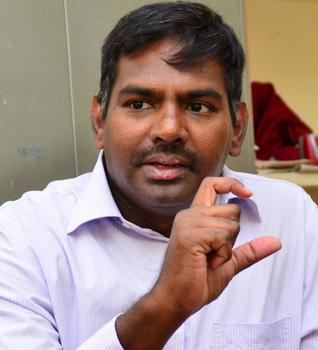
It can make a breakthrough in the field of regeneration of organs
What is common between earthworms and liver, a lot says researchers.
Since liver, like earthworm, has got regenerating capacity even though 80 per cent of the glandular organ gets damaged, it is believed that some of the crucial findings of the research being done on the Manonmaniam Sundaranar University campus on earthworm’s regenerative capacity and its genome may help in devising a bio-artificial liver through the researches going on in the highly sophisticated laboratories of the Cedars — Sinai campus in the United States.
The MSU research has attracted the attention of Prof. Vaithi Arumugaswami of Regenerative Medicine Institute, Cedars — Sinai, U.S., who is actively working with a team of scientists on bio-artificial liver through stem cell research for the past few years. Manonmaniam Sundaranar University’s Department of Biotechnology, that has established one of the well-equipped labs in the country, is conducting researches on earthworm and mice to study their regenerative capacity after almost completing the gene mapping of earthworm by a team of researchers led by S. Sudhakar, Head, Department of Biotechnology, MSU.
“Since many of the genes of the earthworm resemble the gene found in humans, we, through the stem cell research, can make a breakthrough in the field of regeneration of organs like liver. We’re working towards this direction,” says Dr. Sudhakar, who had worked in the U.S. for several years.
When he recently met Prof. Vaithi Arumugaswami, the meeting gave a lot of confidence for both sides about significant progress in their respective researches and taking it to the next level with their findings.
“Since viral infection or alcoholism cause liver cirrhosis and liver cancer that ultimately leads to death, we’ve to look for liver transplantation involving huge sum of money and have to wait indefinitely for cadaveric transplantation or for a brain-dead patient. As liver has got regeneration capacity, we, through our researches, try to devise a bio artificial liver,” says Dr. Vaithi, who was at MSU for delivering lectures for the students of biotechnology on Monday.
Towards this direction, Dr. Vaithi, who hails from Kadayam in Tirunelveli district and did his master’s degree in veterinary science Indian Veterinary Research Institute, Bareilly, Uttar Pradesh, and his team are now conducting researches on mice, rat and pig by overloading its liver with liver-toxic medicines like paracetamol or dimethyl-nitro-amine.
“With the gene mapping we have the basis to show a lot of similarities between earthworm, mice and pig, we hope that we can take the research on realising the dream of bio artificial liver to the next level,” hope Dr. Vaithi and Dr. Sudhakar.
source: http://www.thehindu.com / The Hindu / Home> News> Cities> Madurai / by Special Correspondent / Tirunelveli – August 06th, 2014